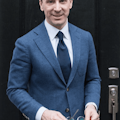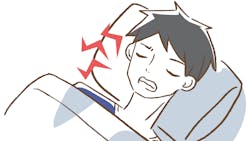Dentist takes holistic approach with patients who grind teeth due to COVID-related stress
COVID-19 has unquestionably, unpredictably, and undeniably changed the global environment in a million ways. It impacts us from every angle—financially, socially, politically, and professionally.
Dental professionals are no strangers to global events as we dealt with the AIDS crisis in the ‘80s, when we adopted universal precautions as a way to treat everyone we see, carefully, across the board. As a result of using those precautions now, epidemiologists and the American Dental Association have reported that there are no cases of COVID attributed to any dental offices in the US. Not a bad statistic. Overall, people are very concerned about their safety when visiting a dental office, and rightfully so. We have an obligation to the public and our staffs to be hypervigilant about implementing protocols and guidelines that are issued by the state and the ADA.
In the middle of March, here in New York City like much of the nation, dental offices were ordered to close. We were not allowed to reopen until May. During that time we addressed dental emergencies through teledentistry. This was not ideal or practical by any means. However, we learned one thing: the majority of emergencies were broken and fractured teeth.
What’s with the broken teeth?
When we reopened we decided to prioritize those patients with broken and fractured teeth. In doing so we needed to delay most routine cleanings and checkups to catch up with the emergencies. Simple single unit crowns usually easily addressed the broken teeth.
While treating these emergencies, as well as other patients who came into our office complaining of discomfort, we noted that clenching and grinding has played a huge role for patients now more than ever. More interestingly, the grinding discussion is being initiated by patients with their dentists more so now than before COVID. In order to treat clenching and grinding, in our office we have been using Botox in addition to night guards. Both together are more effective than one or the other alone. Broken teeth as a result of grinding and clenching is the reason the two work together better.
What else is happening?
But the question remains, why is this problem becoming so prevalent? Simply stated, I believe it is the level of stress that people are experiencing right now. The stress is affecting many aspects of their overall lives and health. While addressing these dental issues we’ve noticed that many people have been uprooted. Many NYC residents have moved, at least temporarily, out of the area to Long Island or upstate New York. This has affected all businesses, including dentists.
When talking with patients I can easily see that many factors are contributing to everyday stress and have truly disrupted people's lives. People are uncertain about their jobs. They’re home 24 hours a day with their families, putting relationships to the test. Parents are very concerned about their children’s educations. Regular routines have been upended, forcing changes to our way of life.
Not to mention that election year is upon us, and this year has been more divisive than ever. And don't forget the recent natural disasters. With gyms, religious institutions, and social circles limited, people do not have their usual outlets. We can all easily see just how difficult and stressful things have become. Along with these stress levels can most certainly come grinding and clenching, and our practice has seen this!
What have I been doing?
My approach to these circumstances has been to explain what I’ve discussed here with patients and take an overall approach. I encourage them to make a conscientious effort to relax before bedtime. I tell them to improve physical activity and get out and do some exercise, whether walking, biking, running, or easy stretching, maybe even a bit of meditation. Nutrition is important as well. I’ve noticed that many people have gained weight while sitting at home.
Concomitantly, I’ve seen that many people's hygiene has been better than expected. So, there are a few upsides to this whole trying time.
Without a vaccine in the immediate future we will need to continue to adjust our routines as necessary. Our attitudes toward this change is most important at this time. If we as dentists choose a good, caring, and empathetic attitude with our stressed patients, including when it comes to the unprecedented amount of grinding that we’re treating, we can create a direction forward that will allow our practices to not just survive, but thrive.
For nearly 18 years, Todd Bertman, DMD, owner of Advanced Dental Arts, provides unparalleled dental care to his patients. In addition to membership in the American Dental Association, Dr. Bertman is a member of the New York County Dental Association and the New York State Dental Association. He is certified as a Level I and II Invisalign practitioner and belongs to the American Academy of Cosmetic Dentistry, the World Clinical Laser Institute, and the IALD (Institute for Advanced Laser and Dentistry). Dr. Bertman graduated from the University of Pittsburgh School of Dental Medicine. He completed a general practice residency in Kings County Hospital in Brooklyn, New York, where he had the opportunity to work in an emergency room setting.
About the Author

Todd Bertman, DMD
For nearly 18 years, Todd Bertman, DMD, owner of Advanced Dental Arts, provides unparalleled dental care to his patients. In addition to membership in the American Dental Association, Dr. Bertman is a member of the New York County Dental Association and the New York State Dental Association. He is certified as a Level I and II Invisalign practitioner and belongs to the American Academy of Cosmetic Dentistry, the World Clinical Laser Institute, and the IALD (Institute for Advanced Laser and Dentistry). Dr. Bertman graduated from the University of Pittsburgh School of Dental Medicine. He completed a general practice residency in Kings County Hospital in Brooklyn, New York, where he had the opportunity to work in an emergency room setting.
